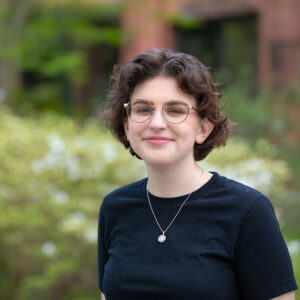Three weeks ago, a journalist named Aisha Sultan published a column in the St. Louis Post-Dispatch detailing the experience that I and a student named Shaadie Ali each had with the website Canary Mission. Canary Mission places people who speak out about Palestinian rights – mainly undergraduates like me – on a blacklist, listing us as racist anti-Semites. I’m Jewish, and I hardly think my support for Palestinians makes me racist or hateful of other Jews, so I told Sultan my story.
Her column brought me dozens of messages – mostly supportive, with a few calling me the “worst kind of Jew” and other names thrown in. But the most interesting response, to me, was that of the Jewish Community Relations Council of St. Louis. The Council released a statement, in a Post-Dispatch editorial, criticizing Canary Mission.
I had interned at the Jewish Community Relations Council during the summer of 2018. All of that summer, I stayed silent about my politics because I feared that if the leadership at the JCRC found out where I stood, I would no longer be welcome within my St. Louis Jewish community. It shocked me then, that when my politics were publicized, the JCRC published a statement affirming my role within the community, even across ideological divides.
“Our society and our Jewish community, in particular, are stronger because of the diversity of opinions we hold within it,” they said in their statement. “We believe in the right of every individual within our community to express viewpoints without fear of intimidation. It is precisely through the open exchange of ideas and respectful discourse that we are able to enhance our knowledge, hone our values and attain deeper levels of understanding.” The very group that I believed wouldn’t hire me due to my politics was now stating that though they disagreed with me, they respected my opinion.
This felt like an unusual move. Cities across the country have Jewish Community Relations Councils, which have existed since the early 20th century as resources to advocate for the needs of Jews within their communities. JCRCS are often deeply beholden to their local Jewish Federation. Over the past several decades, many JCRCs have become something more than Jewish community advocacy groups; they are also Israel advocates, discussing and defending the State of Israel through statements, events, and policy.
Local JCRCs and Federations across the country have also often tended towards suppression of leftist elements within their communities. The recent cases of San Francisco and Boston tell this story well.
An investigative piece in the Forward last October revealed that the San Francisco Jewish Federation (of which the San Francisco JCRC is a beneficiary) had been funneling funds towards Canary Mission – the same group which the St. Louis JCRC condemned. $100,000 had been earmarked for Canary Mission by the Diller Foundation, a supporting foundation of the Federation. The Diller Foundation runs the Diller Teen Fellows Program, a prestigious leadership training program, and when the Forward’s story broke, alumni of that fellowship wrote a letter asking the Federation and Foundation to make teshuva.
Though the San Francisco Federation released a statement saying they had ended their funding of Canary Mission, they have as of yet not completed the reparatory actions demanded by the Diller Teen Fellow alumni. These actions would have included grant-funding to organizations “committed to ending Islamophobia and racism,” in equal amounts to the funding given to Canary Mission and Regavim, a far-right Israeli NGO.
The Boston JCRC, for its part, recently made another public move against pro-Palestinian Jews. On January 17th, they cut ties with the Boston Workmen’s Circle, a longstanding, pluralistic Jewish group that has at times affiliated itself with anti-Zionist Jewish voices.
The Boston JCRC approved a motion saying that no group connected to the JCRC can partner with an anti-Zionist Jewish organization. As reasoning, they cited their mission, writing, “It is the long established view of the JCRC Council…that support for BDS is contrary to our mission of advocating for a safe, secure, Jewish and democratic state of Israel.”
In a statement released by the Workmen’s Circle on January 18th, the organization responded, “We firmly believe that the JCRC does not effectively show support for Israel, or for the well-being of the Jewish people, by silencing the voices of those with whom it disagrees.”
—————————————————————-
So, what led the St. Louis JCRC to issue a statement criticizing Canary Mission, when other JCRCs and Federations have actively supported the site, and distanced themselves from pro-Palestinian Jews?
The St. Louis JCRC is, politically, similar to many other local branches. Their executive director, Maharat Rori Picker Neiss, is a proud Zionist, who has written op-eds for the local Jewish paper about her love for Israel. The St. Louis Jewish Federation is similarly aligned – each year, they co-sponsor Israeli Independence Day celebrations in the city.
Though each Jewish Community Relations Council is a locally-run group, they are all connected through the national Jewish Council for Public Affairs (JCPA), which takes a broad Israel-advocacy position. Every JCRC is also either part of their local Federation, or is an independent agency affiliated with the Federation. The Jewish Federations of North America (JFNA) is a national member of JCPA.
According to Picker Neiss, the JCRC of St. Louis is an independent agency, and therefore has a measure of remove from overseeing bodies.
In an email, Picker Neiss wrote, “The JCRC of St. Louis is an independent agency. Although we are a beneficiary agency of the Jewish Federation and work in close partnership with them, we are governed by an independent board. This allows our JCRC to set our agenda based on our mission and the policies set forth by our Council, independent of the fundraising and relationship-building of the Jewish Federation.”
It seems to me that Jewish community organizations choose their actions in much the same way that individuals within the Jewish community do: they are much more likely to speak out for their beliefs (and for the rights of others) when they know that doing so will not bring severe repercussions upon them. I can only conclude that for the JCRC chapters in San Francisco and Boston, their funding must be dependent upon condemning points of view that are critical of Israel as loudly as possible – regardless of how many individuals they might be shutting out of their communities in the process.
Though the St. Louis chapter is by no means politically radical, and is in fact staunchly Zionist (“I personally and professionally disagree strongly with your antizionist stance,” Picker Neiss told me) they are free to state that people of diverse viewpoints will still be welcomed within the Jewish community – in St. Louis, at least.
“In discussions around Israel and Palestine, there are loud voices on the left and loud voices on the right, but the majority of voices opt out of the conversation entirely because they are often scared or uncomfortable,” Picker Neiss said. I myself had opted out of the conversation when I hid my politics as a JCRC intern. However, the St. Louis JCRC ended up surprising me, and did something that I hope other Jewish community leaders might do: they told me that, though we disagreed, I was still part of their community.
Sophie Hurwitz is a student at Wellesley College majoring in history and working as news editor at the Wellesley News in her spare time. She was born and raised in St. Louis, Missouri.
Featured image credit: Pixabay.com/ESD-SS.

